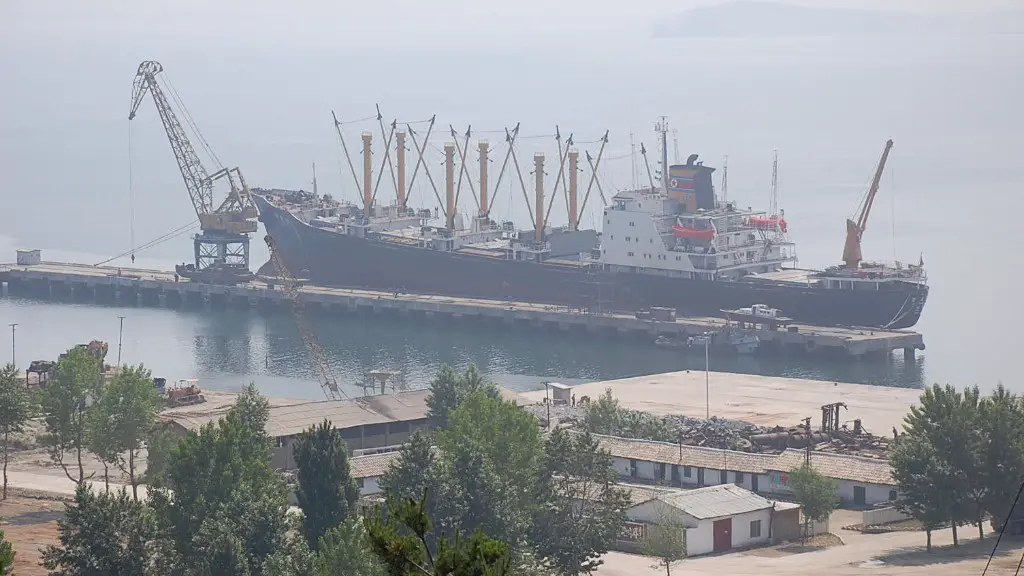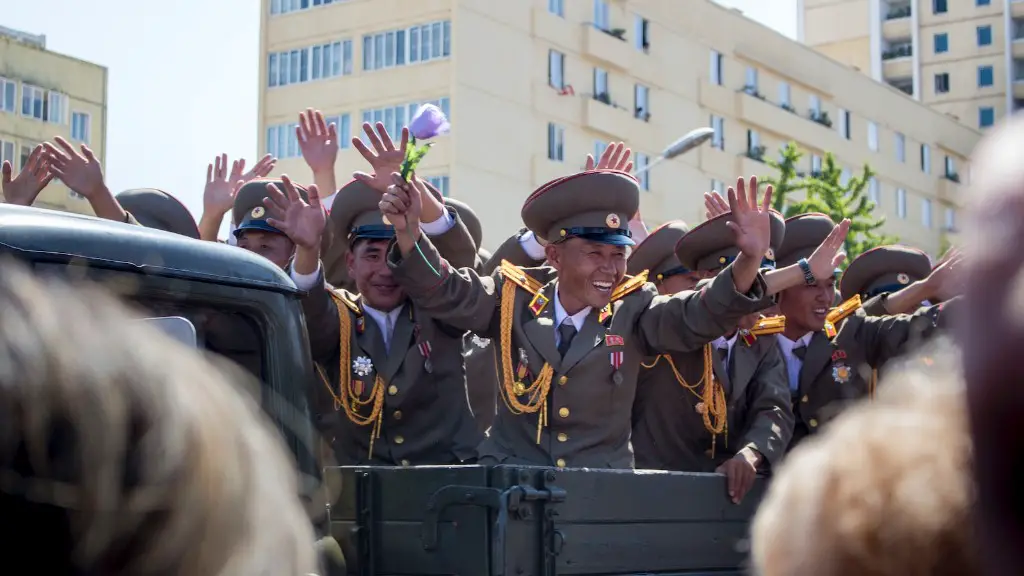Background
North Korea is one of only nine states believed to have nuclear weapons. Unlike other states, North Korea never declared its nuclear armaments, but its increasingly belligerent attitude and adopted military expansionism announced it mainstreamed in 2006. Currently, North Korea is believed to possess up to 25 nuclear warheads, with estimates that they potentially still have enough fissile material to be able to increase the number of nuclear warheads in 2023 to around 60. North Korea also possesses a variety of missile delivery systems, such as ground-launched, aircraft-launched, and mobile missiles. Many experts believe that North Korea will soon be able to deliver nuclear weapons to Japan, South Korea, and even the United States.
Nuclear Weapon Technology Development in N. Korea
North Korea has developed its nuclear weapon technology mainly through a combination of diplomacy, smuggling organizations, and domestic development. In 2003, the United States accused North Korea of using Libyan-supplied uranium to build a nuclear weapon. Subsequently, the six-party talks (United States, Japan, South Korea, Russia, China, and North Korea) established in 2003 and broken off in 2009 did not succeed in disarming the country. In March 2006, North Korea declared that it had conducted its first nuclear test, a statement North Korea later confirmed in an official statement. The test was conducted in the morning of October 9, 2006, and US officials confirmed the test shortly afterwards.
Nuclear Arms Development Since 2006
Since 2006, North Korea has conducted numerous other missile tests, six more nuclear tests, and numerous other nuclear-related experiments including a high explosive test, a compact nuclear device and an enhanced nuclear device. The frequency and the sophistication of these tests has increased recently, indicating that North Korea is making progress towards creating weapons capable of reaching distant targets. In April 2017, North Korea announced that it had successfully conducted its most powerful missile test yet, and the missiles appeared to be a re-design of the road-mobile Taepodong-2/Musudan intermediate-range ballistic missile. In November 2017, North Korea launched an intercontinental ballistic missile (ICBM), with a range of 8,000 km, believed to be capable of reaching the United States mainland.
Implications of North Korea’s Nuclear Weapons
North Korea’s nuclear weapons capabilities have posed a direct threat to its neighbors and to the international community. North Korea poses a serious threat to US national security due to its growing nuclear arsenal, ballistic missile capabilities, other weapons of mass destruction and potential offensive cyber activities. It is also feared that North Korea may not adhere to international security norms and could use its nuclear weapons in an aggressive way. Moreover, North Korea may become the first state in the world to detonate a nuclear weapon in 21st century, thus undermining the deterrence that has existed since the end of the Cold War.
International Reactions
In response to North Korea’s nuclear activities, the international community has taken a number of measures to contain the advancement of North Korea’s nuclear arsenal. These include UN Security Council (UNSC) resolutions (UNSC Resolution 1718 in October 2006, and Resolution 1787 in Nov 2005, among others) and US sanctions on North Korea (US Executive Order 13466 of June 2008, focusing on financial and commercial restrictions, among others). Pacific countries like South Korea and Japan have also deployedtheir own defense systems – including missile defense shields – in order to counter North Korea’s weapon capabilities.
US-North Korea Relations
North Korea’s nuclear advancement has placed a strain on the relationship between the United States and North Korea. The US has stated that it wants denuclearisation of the Korean peninsula, but North Korea continues to refuse to comply. In June 2018, the historic Trump-Kim summit resulted in a pledge from North Korea that it “will work toward complete denuclearisation of the Korean peninsula”. Despite this, tensions between the two countries remain high, and it is still unknown how it is going to be cleared up and the question of how to persuade North Korea remains unanswered.
Possible Resolution of the Conflict
The challenge of finding a resolution to the conflict between North Korea’s and the rest of the international community is daunting, as the North Korean government has proven unwilling to engage in international dialogues and appears to have made up its mind to keep its nuclear arsenal. However, there are some options available in order to reach a resolution. One possible option is a policy of containment, which would involve strengthening diplomatic, political and economic ties with North Korea in order to persuade them to comply with the international community’s demands. Alternatively, the international community can pursue a policy of coercion and pressure, where sanctions and other means would be used to force North Korea to comply. This option is considered less desirable, as it may lead to a conflict.
Impact of North Korea’s Nuclear Arsenal on the Region
North Korea’s nuclear weapons capabilities have become a direct threat to its neighbours and the international community. The development of the arsenal has caused the region to become more unstable and has greatly increased the risk of nuclear warfare, as North Korea is no longer bound to the international non-proliferation regime. As a result, South Korea and Japan have increased their defence capabilities and other countries in the region have become increasingly wary of North Korea’s ability to deliver nuclear weapons to them.
International Efforts to Counter North Korea’s Progress
In order to counter North Korea’s nuclear capabilities, the international community has taken a number of steps. These include UNSC resolutions, US sanctions on North Korea and the deployment of missile defence systems by countries like South Korea and Japan. However, although these measures have been successful in deterring North Korea, they have not been able to completely halt its progress. Therefore, it is crucial for the international community to engage North Korea in dialogue in order to find a long-term resolution to the conflict.
Impact of North Korea’s Nuclear Arsenal on Global Security
North Korea’s nuclear arsenal has become an issue of global security, as its capabilities mean that it could potentially deliver nuclear weapons to other countries in the world. In addition, North Korea’s disregard for international security norms has caused other states, particularly the United States, to be increasingly wary of its intentions. As a result, the United States and other countries have taken a number of steps to contain North Korea’s capabilities and to prevent it from using its nuclear weapons.
Outlook on North Korea’s Nuclear Weapons
It is difficult to predict what North Korea’s intentions are, and whether it will eventually comply with the international community’s demands to denuclearise. However, as North Korea continues to progress in its nuclear capabilities, it is likely that more countries will take steps to limit their nuclear ambitions and to ensure global security. At the same time, North Korea must also be persuaded to stop its development of nuclear weapons in order to avoid potential conflict. Therefore, ongoing dialogue and negotiations are essential in order to ensure peace and stability in the region.


